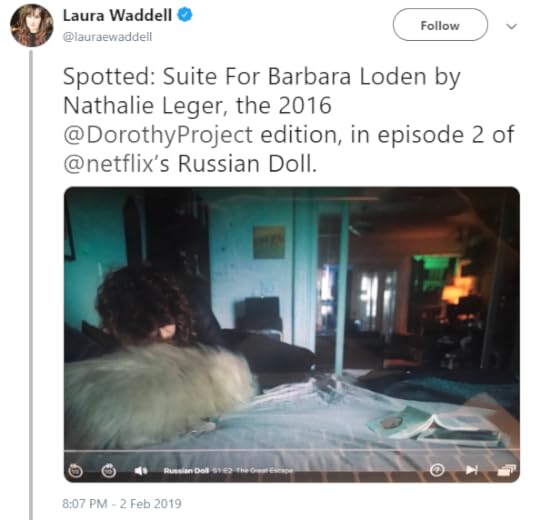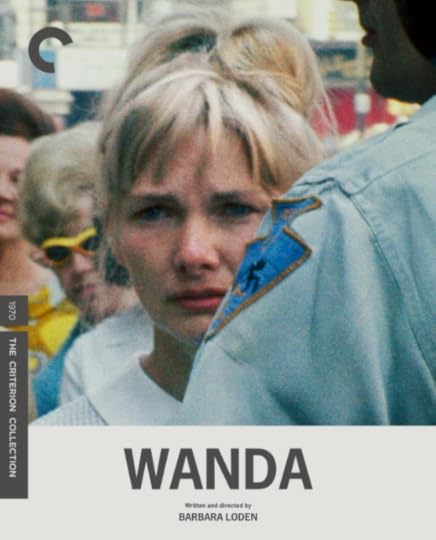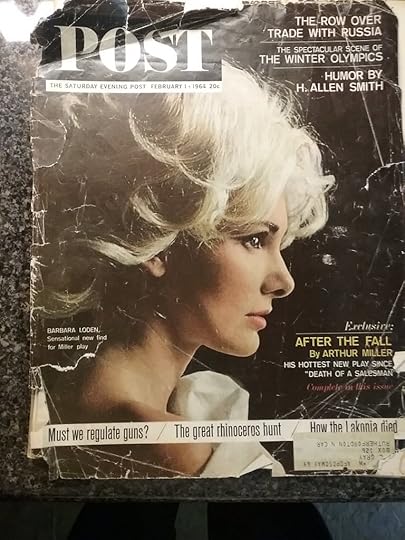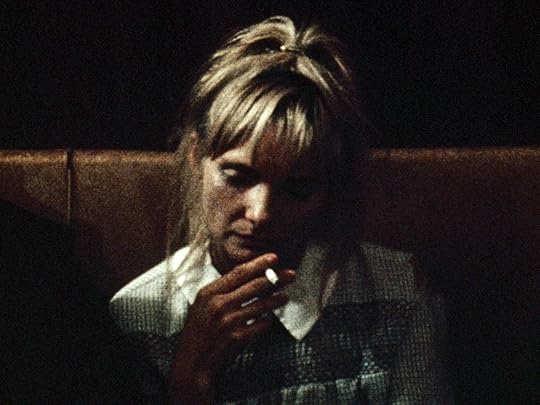What do you think?
Rate this book


101 pages, Paperback
First published January 5, 2012



Among these I find a small white book—the galleys of a novel by Nathalie Léger called Untitled for Barbara Loden. It looks a little out of place there , squeezed and silent, so I take it out and head back to the room.That galley, which the author herself read, was the as-then-untitled English translation of Supplément à la vie de Barbara Loden by Nathalie Léger, brilliantly translated by Natasha Lehrer and Cécile Menon as Suite for Barbara Loden, and published in the UK by a new publisher Les Fugitives (http://www.lesfugitives.com/about/) founded by Manon.
..
I turn on my bedside lamp and stay up late, reading the novel by Nathalie Léger, underlining parts of sentences:
“violence, yes, but the acceptable face of violence, the kind of banal cruelty enacted within the family
"the hum of ordinary life”
“the story of a woman who has lost something important but does not know exactly what”
“a woman on the run or in hiding, concealing her pain and her refusal, putting on an act in order to break free”
I’m reading the same book in bed when the boy wakes up before sunrise the next morning. His sister and father are still asleep. I have hardly slept all night. He makes an effort to seem like he’s been awake for a long time, or like he’d never fallen asleep and we’d been having an intermittent conversation all the while. Wrenching himself up, in a loud, clear voice, he asks what I’m reading.
A French book, I whisper.
What’s it about?
Nothing, really. It’s about a woman who’s looking for something.
Looking for what?
I don’t know yet; she doesn’t know yet.




She explains that Wanda doesn’t know what she wants, but she knows what she doesn’t want; she’s trying to get out of this “ugly type of existence,” but she doesn’t know how to go about it; she’s doing her best; she can’t cope with life, all she knows is that she’s no good at anything.Wanda doesn’t speak much, but at one moment she poignantly resigns with the haunting words:
“I’m no good, I’m useless, I can’t do anything.”And here is again an interview with Barbara Loden talking about Wanda:
“I used to be a lot like that. I had no identity of my own. I just became whatever I thought people wanted me to become… I feel very close to her emotionally.”(Note the present tense in the last sentence.)

 Barbara Loden on the cover of The Saturday Evening Post, February 1964
Barbara Loden on the cover of The Saturday Evening Post, February 1964... she is buried beneath this dark, shapeless body, out of sight under his bulk, he's heavy, I'm fighting for breath, he's crushing me, no more words as the sweet guy rapes her.